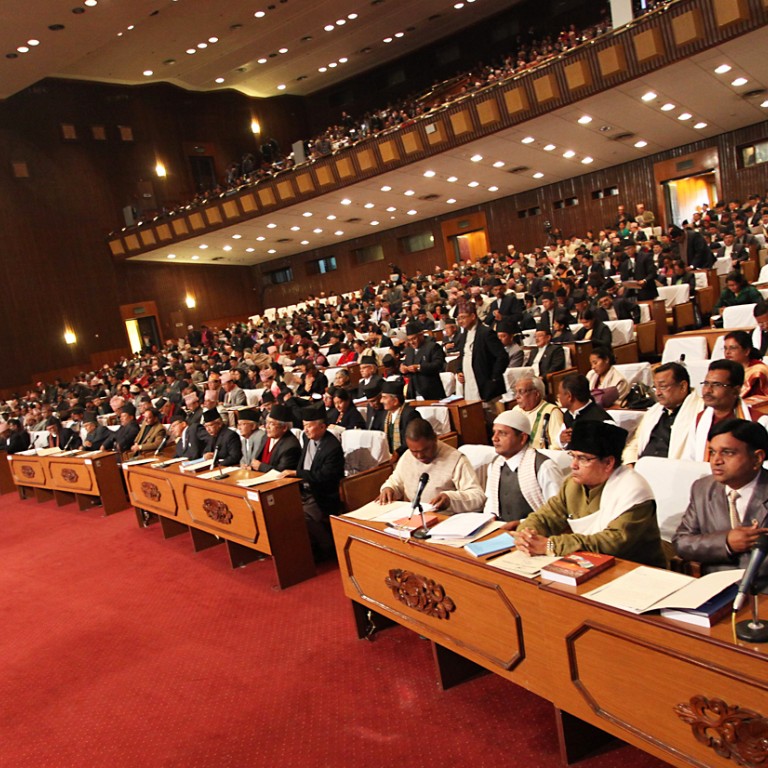
Nepalese lawmakers begin new push to agree on constitution
Nepalese lawmakers yesterday began a new push to agree on a constitution that can deliver stability to the Himalayan nation, still divided by the legacy of a decade-long civil war.
Nepalese lawmakers yesterday began a new push to agree on a constitution that can deliver stability to the Himalayan nation, still divided by the legacy of a decade-long civil war.
A newly elected constituent assembly was due to convene in Kathmandu, nearly a month after the former ruling Maoist party dropped a boycott threat, raising hopes of breaking a deadlock within a year as promised by lawmakers.
A failure by the two other major parties, the Nepali Congress and the Unified Marxist-Leninist, to agree on a coalition government has dampened some of that hope and underlined the difficulties of reaching a consensus.
The Congress, which won the most seats in the November 19 election, is still expected to form the next government, possibly in a coalition with the UML.
Nepal has been in political limbo for nearly two years, since the dissolution of the country's first constituent assembly. The Maoists came to power in 2008 after a election victory, two years after signing a deal to end a decade-long insurgency that also saw former king Gyanendra step down.
The ensuing four years were marked by a series of short-term coalition governments, mainly led by the Maoists, and the first assembly broke up amid rancour in May 2012. The Maoists' loss at the November poll and an initial threat to boycott the new assembly over electoral fraud claims raised fears that the new body would be beset by similar woes.
Analysts say the main parties know they cannot afford to allow their disagreements over the constitution to go on. "The parties will have to work things out, they have no other option," said Lok Raj Baral of the Nepal Centre for Contemporary Studies.
